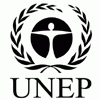Resource information
I n order to safeguard long-term equitable and sustainable environmental management and governance, a clear and transparent relationship to land – whether an individual’s, a community’s, a government’s or a private investor’s – is essential. To this end, UNEP has begun to engage on land issues in Sudan, and will continue to do so through the next four year phase of programming, as part of supporting the people and the government of Darfur in rebuilding and redefining the social contract on natural resources and land. This report demonstrates that exposing key decisionmakers and technical staff to relevant experiences, or case studies, on natural resource management and land tenure in other, similar, dryland contexts can inspire homegrown solutions to local problems. This is especially true when those case studies reflect the fundamental relationship between tenure security and effective natural resource management, and when governance is strongly articulated. Learning about such experiences allows participants to observe how others have solved similar challenges, to reflect on this individually and with peers, and to take away lessons that participants deem appropriate for their respective contexts. Additionally, it allows practitioners and decision makers to discuss solutions and open dialogue amongst themselves for an extended period of time – something they very often do not have the opportunity to do while in their work environments.


